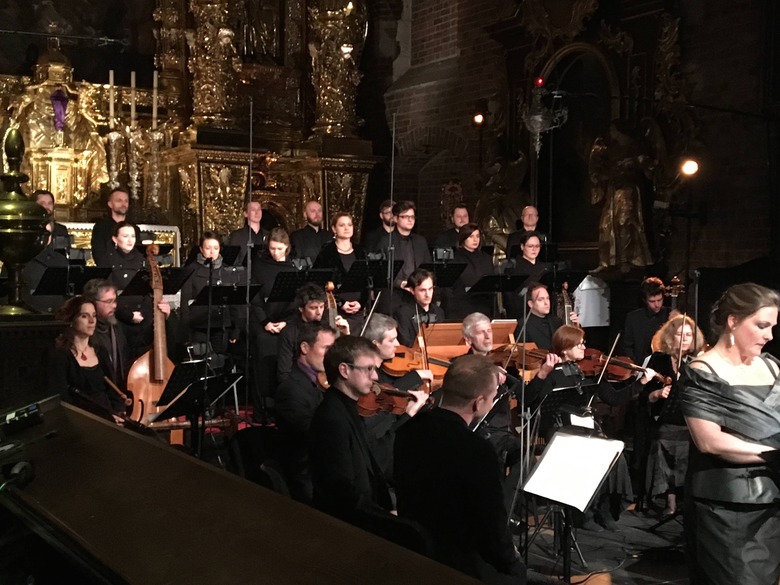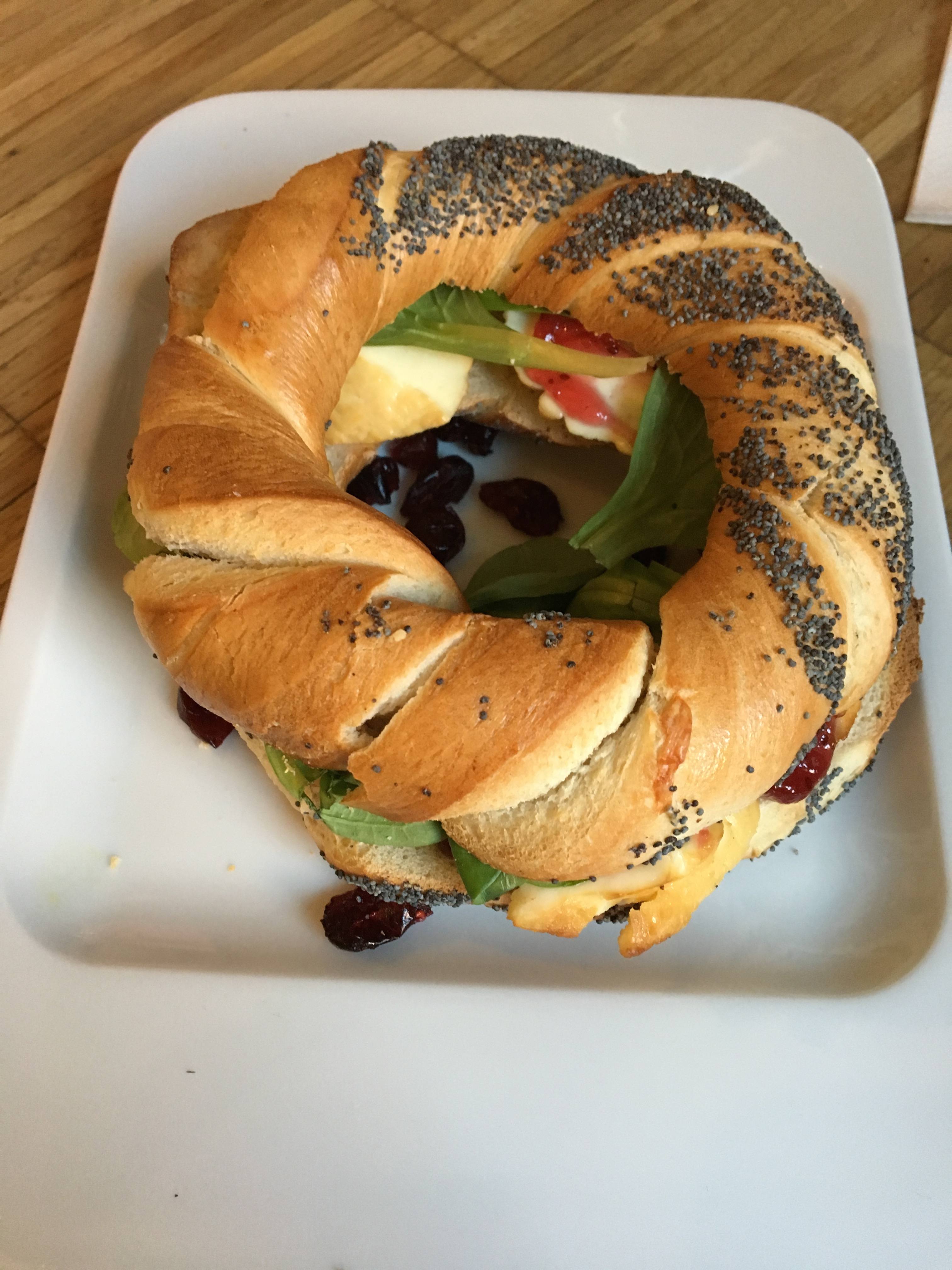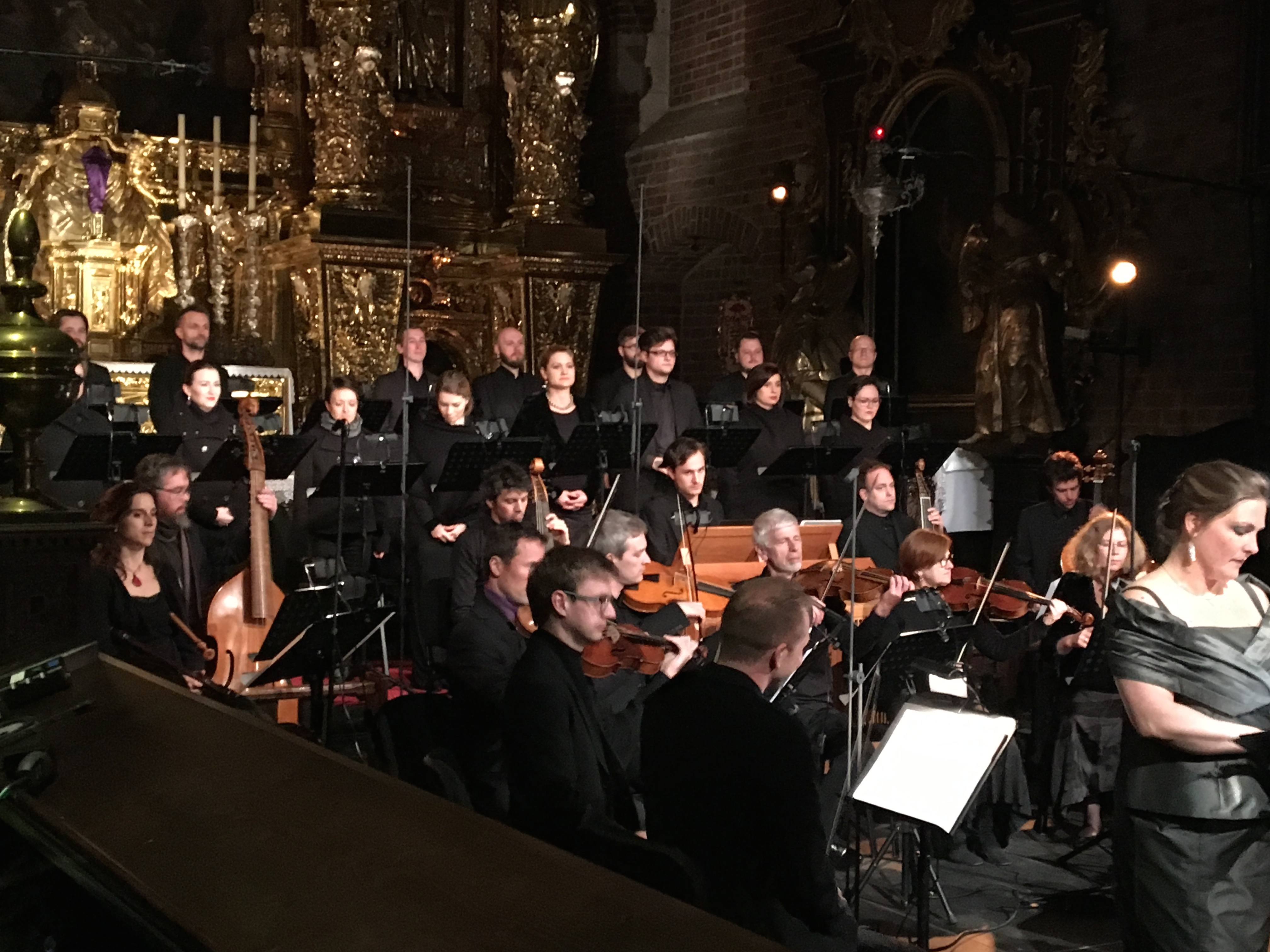If Music Be The Food Of Love: Don't Miss Kraków's Misteria Paschalia
Whether music be or be not the food of love, a brace of concerts sandwiched around dinner in Kraków makes for a memorable evening.
And if you're lucky enough to be lodged in the brand new Golden Tulip Kraków Kazimierz, you're perfectly placed for the festival's two best and most beloved music venues, Saint Katherine's and the Corpus Christi churches, each barely 100 meters away, with enough excellent international and Polish cuisine nearby to keep hunger at bay in style.
The Easter early music festival in Poland's cultural capitaloffers eight days of baroque music by the world's most famous groups along with some of the best and most surprising gastronomy anywhere in northern Europe. The resident artistic director of Misteria Paschalia 2017 was the French lutenist Vincent Dumestre, founder and director of his renowned ensemble Le Poème Harmonique. Dumestre, 49, assembled a staggeringly beautiful festival using a preponderance of artists and composers primarily from France but including representatives from Italy, Germany, Russia, and Portugal. Perhaps most notably, he reconstructed the full cycle of the Leçons de Ténèbres ("Lessons of Darkness"), a genre of French baroque music consisting of polyphonic choral lamentations for the Easter midnight candlelight services written by Renaissance composers such as Sermisy, Gesualdo, Tallis and Tomás Luis de Victoria.
An evening libation at the very good and nearby BARaWINO (Wine Bar) at Mostowa 1 is a recommendable prelude to the evening's concerts in the Corpus Christi church. With a wide and thoughtfully composed selection of wines gathered from as far as New Zealand and Argentina by the owner, famous Polish actor Marek Kondrat, there are a dozen wines available by the glass and hundreds more by the bottle. The Polish pretzel or obwarzanek (ob-var-ZHA-nek), more like a bagel than a pretzel, loaded with sheep cheese, cranberries, and baby spinach, could easily be mistaken for dinner on an abstemious night.
The Corpus Christi church, new to this 14th edition of the Misteria Paschalia festival, features a recently re-gilded baroque altar even more dazzling and opulent than the one at Saint Katherine's, making the shadows all the more mysterious and poignant with, well, Misteria Paschalia, which means "Easter mystery." The "Messe des Morts" by French composer Jean Gilles, performed by the Capriccio Stravagante and the Capella Cracoviensis directed by Skip Sempé, was the early 8 o'clock performance, with Sébastien de Brossard's "Leçons de Ténèbres du Mercredi Saint" with Victoire Bunel, Le Quadrige, and the Ensemble Athénaïs trio at 11.
Dinner after the early concert was at Bottiglieria 1881, a wine-tasting specialist and excellent restaurant a couple of blocks away at Bocheńska 5. This century-old wine cellar has been redecorated and re-designed in bright wood, stone, glass and metal and seems a quantum leap removed from the antique appeal of the surrounding Kazimierz Jewish district. The elegant tasting tables and chambers downstairs are worth a look, as is the giant block of wood in the middle of the rest room. With 450 different wines available from all over Europe and a menu featuring up-to-date interpretations of international cuisine, we barely made it back to Corpus Christi for the late concert. Chief sommelier Michał Jancik and chef Pawel Kras team up to produce novel tastes and wine pairings. The tapas selection of the day is a good starter, while the tagliatelle with scallops, sepia, and crayfish sauce barely edged out the pork sirloin with wild asparagus, pearl barley, and chanterelles for top honors on the menu. The seven-year-old verdejo was a novelty, a 2010 Blanco Nieva Pie Franco fermented in oak with an almost sherry-like quality, while the plush and pleasing Austrian Zweigelt red went well with the pork sirloin.
"Leçons de Ténèbres," starring French mezzosoprano Victoire Bunel singing a heart-rending lamentation filled with color, lovely and difficult melismas, and a continuous fresh, bright sound, was one of the most profound and mystical artistic moments of the week. While Ensemble Athénaïs, two sopranos (Alix Rousselet and Victoria Jung) and a mezzo (Axelle Verner), sang antiphonal responses from a loft halfway back up the nave, the 15 candles around the altar, symbolizing the three Marys and the twelve apostles, were extinguished one by one. The concert, which had begun on Tuesday, ended in the early hours of Wednesday as the final candle was extinguished and the Corpus Christi church was left in such total darkness that the light of the full Easter Moon was visible against the top of the apse behind the altar. It took a long, silent moment before any member of the audience was willing to break the mood with a tentative clap. As the church emptied slowly, members of the audience lingered, some lost in prayer on their bare knees on the stone slabs of the floor.
Another night we opted for a tiny hole-in-the-wall restaurant, the aptly and simply-named Restauracja Polska (Polish Restaurant) on nearby Meiselsa 22 just off Plac Nowy (New Square) where a steamy little group of diners tried local specialties in a warm and intimate setting. Żurek, the famous Polish sour soup made with rye meal and sausage and known for its miraculous hangover-curing properties, beetroot soup, spinach pierogis, potato pancakes with beef stew, ribs with spinach: the list of home-cooked wonders here is long and constantly changing.
On yet another night we walked ten minutes across the river Wisła (Vistula to the Romans) to the wonderful Zakładka at Józefińska 2 (+48 124 427 442). The kładka or footbridge, officially known as the Bernatka bridge, apparently in no danger of buckling under the thousands of love padlocks attached to the heavy wire mesh (some violently ripped out with wire cutters) leads to Podgórze, Kraków's right-bank repository for many things good, from the Schindler Museum and the adjoining Mocak Museum of Contemporary Art to the Tadeusz Kantor Cricoteka Museum perched playfully on the banks of the river. The nine acrobatic figures suspended from the bridge over the waters of the Wisła are an installation by Polish artist Jerzy "Jotki" Kędziora entitled "Between water and sky."
Zakładka's chef Rafał Targosz offers a balanced Polish and international menu that includes delights on the order of white asparagus and green pea cream soup or a mini-ratatouille in a pot. Shamelessly embracing the "joys of comfort food" learned during his years working in an Auxerre bistro, Targosz opened here in 2013 and is now beginning his fifth year in the forefront of Kraków's contemporary cooking surge. A sea trout fillet in an aniseed ragout with mussels, leeks, and spring potatoes was light and filled with different tastes, while the baked whole Normandy Camembert and the baked goat cheese with beets and greens competed for the cheese laurels. The eclectic international wine list offered up a crisp white Villa Solais Vermentino di Sardegna from Santadi, Sardinia. Dessert presents a choice between "Le Trou Normand" (Calvados and apple sorbet) and "Le Trou Zakładka" (vodka and lemon sorbet), either of which will provide refreshing closure to get you happily up and out the door.
Other musical dining destinations would include La Petite France at Szpitalna 20 in the northeastern part of the old city a couple of blocks from the central Rynek or Market square, requiring a short taxi ride unless you have 45 minutes for the walk. This little slice of French cooking in Kraków provides a chance for escargots de Bourgogne, magret de canard au miel and, yes, even cuisses de grenouille, frogs' legs sautéed to a crunchy delicious crisp. Poulet basquaise is another strong contender for high honors here, while the duck with pears and caramelized figs call to mind the Moorish-influenced salty-sweet concoctions dear to the French of "northern Catalonia" via the Moorish tenure in the Balearic Islands 90 miles east of Barcelona. Baked Camembert with apple is a good closer, but have a look in the refrigerator: it just might contain a Pont-l'Évêque cheese, the oldest Norman cow cheese still in production, better than a Proustian madeleine for transporting the imagination to Lisieux and Deauville in the Calvados département of Normandy.
Even in the early hours of the morning, all is not lost, food-wise. In the center of the Placa Nowy, two steps away from the Corpus Christi church, the Endzior stand in the ancient round building in the center of the market square, called Okrąglak ("rotunda"), turns out delicious street food favorites called zapiekanki, open toasted sandwiches with very tasty confabulations of cheese, mushrooms, spinach, and bacon that hit the spot for the late-night snack. Meanwhile, across the street, the excellent Kolory Café and B&B at Estery 10 is open until all hours for a beverage in their happy jumble of tables and early morning revelers.


